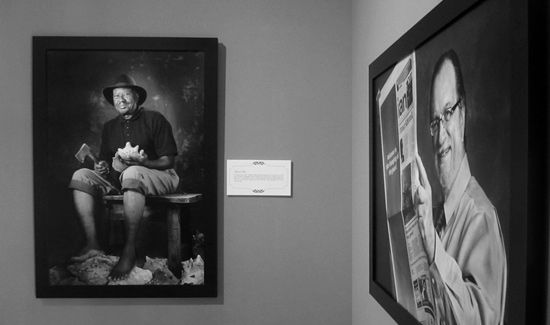The biggest loser in a yes vote to “support the regulation and taxation of web shop gaming” will be the Bahamian people. It should be noted that while that is the language of the proposed referendum question, the issue is really whether to legalize what is currently a criminal enterprise.
The chief honchos of a yes vote on web shops want a no vote on a national lottery: Just about everybody wins with a national lottery, while only a few win with the legalization of web shops.
For the sake of country, Bahamians should vote no to the greed of a few who may literally laugh all the way to the bank, if not seek to open a bank, to deposit their jackpot of profits galore.
The crap game to allow for the legalization of web shops has generally been promoted by a coalition of self interests bent on maximizing personal gain and greed at the expense of the broader interests of the vast majority of Bahamians.
The big winners in a yes vote may be a briar patch of certain criminal enterprises and their paid agents, alongside a wheel of fortune of certain politicians in hock to their paymasters.
Then there are certain reverend gentlemen who are delighted to have the money changers right up front in the sanctuary of the temple. The love of money may be the root of certain evil inasmuch as it may be the root of hypocrisy of biblical proportions.
The legalization of all forms of gambling is opposed by some. For others, various forms of gambling are not inherently unethical. For the latter, the ethical and policy questions concern what forms of gambling and how gambling is to be administered, regulated and taxed.
These ethical and policy questions involve what kind of lottery system would be best for the country in terms of who would receive the greater benefit of funds generated by a lottery.
Initiatives
With a national lottery, most of the funds should go to the Public Treasury, utilized for public purposes like a greater number of scholarships for students, more financial support for culture, sports, youth programs and other initiatives of social good.
A concern and caveat: It remains uncertain what the government means by a national lottery, who will run such an enterprise, and how profits are to be distributed.
But, if there is a majority yes vote on a national lottery, it can be redeveloped into a more progressive lottery over time if the current administration fails to develop the type of national lottery more beneficial to the greater good.
In voting yes for web shops, the bulk of the millions would be jammed into the already overflowing coffers and overstuffed vaults of a few to be used for their private pleasure, making some people wealthier while starving the public purse of badly needed funds needed to empower working Bahamians.
In saying yes to web shops, voters would be saying a resounding no to the needs of the children and future generations of Bahamians. In terms of social justice and the needs of the poor and working class Bahamians, a government-owned national lottery is overwhelmingly more in the interest of the country.
The intense yes vote drive for web cafes has littered the country with billboards, t-shirts, broadcast commercials, social media efforts, jingles, giveaways, rum-soaked parties and other means of enticing and inducing voters.
Was any of the largesse for this slick campaign from illegally-derived funds? What does it say about our democracy if the funds for certain campaigns related to the yes vote are not from legal sources? And how much have they spent? Millions?
Does the Utilities Regulation and Competition Authority (URCA) have reason to investigate the source of funds being used to run certain broadcast ads?
Unseemly
The yes vote extravaganza has a democratic right to engage in such an orgy and frenzy of enticement and inducement. Yet it has mostly been unseemly. Some of the activities coincided with the Christmas season, mocking the spirit of gift-giving by raffling gifts more out of seeming self-interest than true generosity.
In many lower income neighborhoods there are signs encouraging poorer Bahamians to vote yes to further enrich numbers bosses secure in gated enclaves where they may count their many millions in splendor and comfort.
What will help to educate and empower greater numbers of poorer Bahamians will be the greater amount of dedicated funds from a national lottery rather than the lesser amount of taxes derived from the proceeds of web shops.
It is nauseating to watch as some pretend to be Robin Hood, though they more resemble the Sheriff of Nottingham, who happily banked the wealth of the poor to enrich his pocket and ambitions. And, make no mistake, the web shop millions are made up of the dollars of many Bahamians who can least afford it.
The ratings group Moody’s Investors Service recently “downgraded its sovereign credit rating for The Bahamas by one notch to Baa1, citing limited economic growth prospects”.
With the need for increased revenues relative to the government’s annual deficit and the country’s overall debt, a national lottery would generate a greater amount of funds dedicated to various areas of the national budget, especially those areas that are likely to be the first victims of spending cuts.
A national lottery is no panacea on issues of deficit and debt. But a national lottery may better help to address both more so than legalizing web shops, from which the country would generate less critically needed revenue.
Those uncertain as to whether they will vote, have a self-interest and a patriotic obligation to vote. In abstaining from voting, one may very well help advance the narrower interests of some.
The upcoming referendum is not about PLP or FNM. It is about country first. The way to box the choice on January 28 is to vote no on web shops and to vote yes on a national lottery.
By: Simon
Author of the Front Porch column in the Nassau Guardian
and contributor to www.bahamapundit.com


